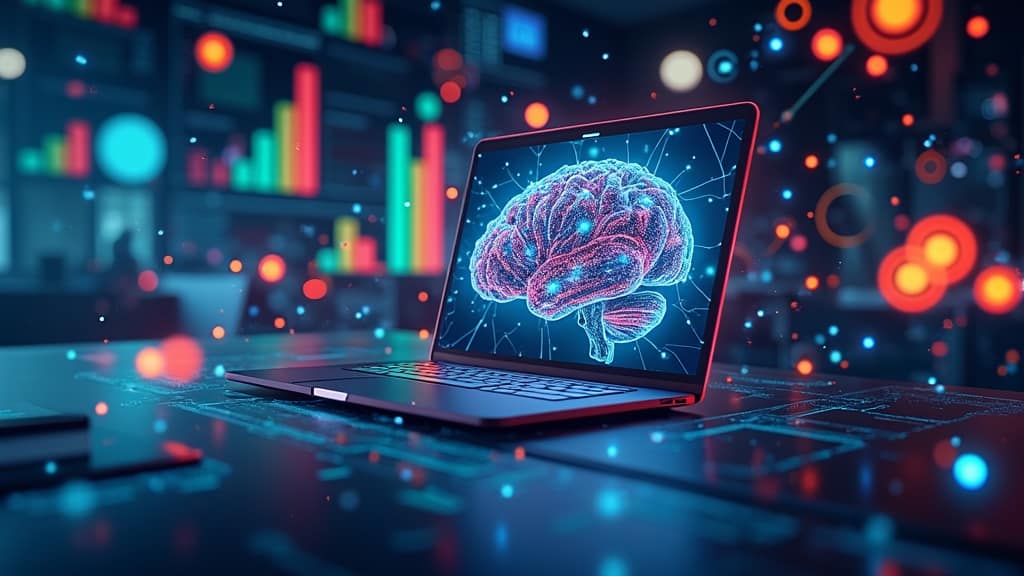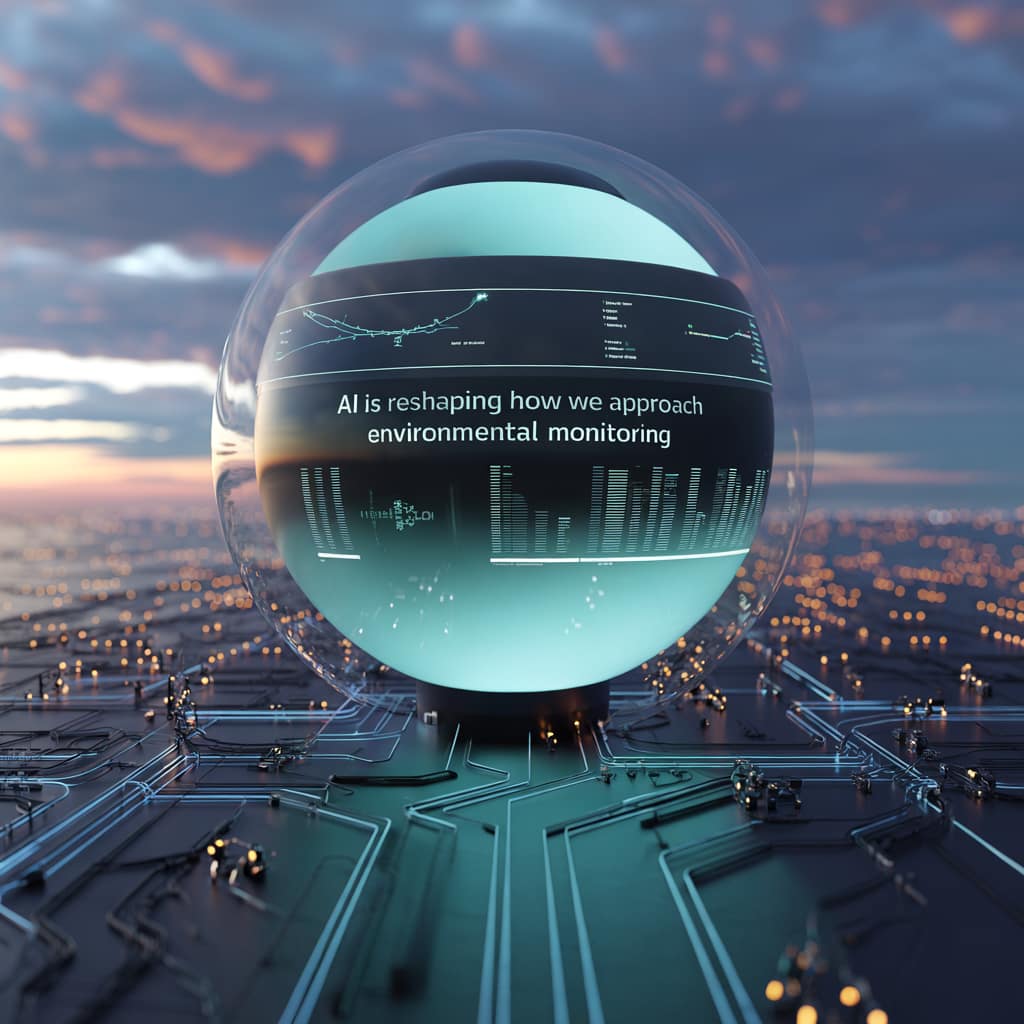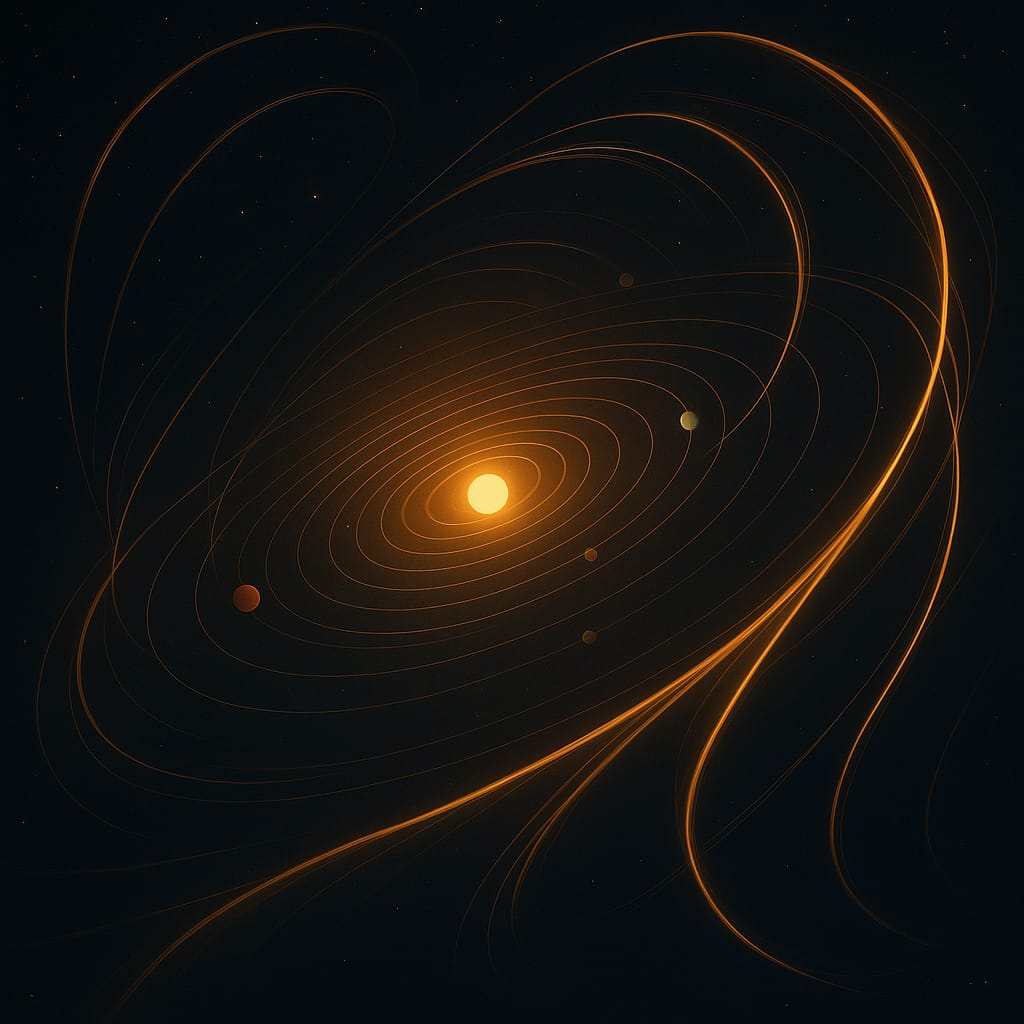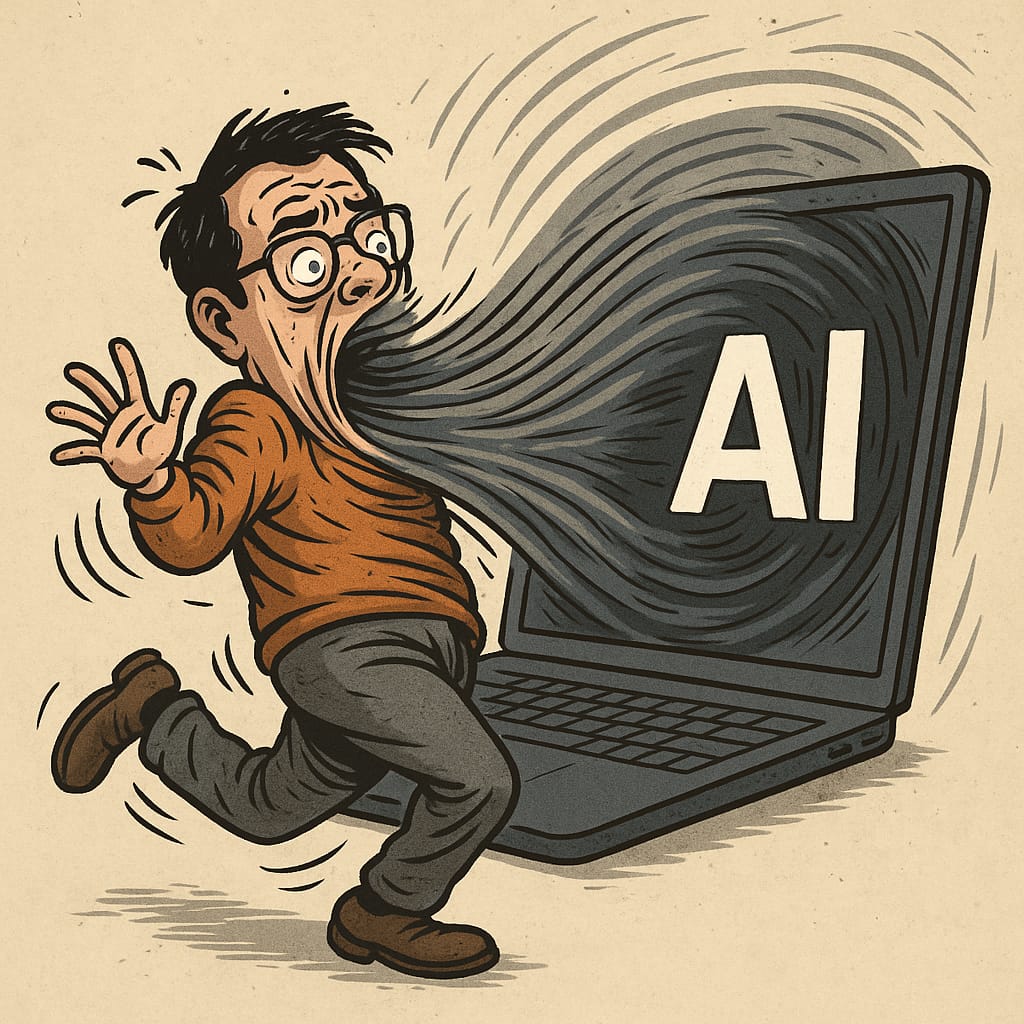The intersection of AI and mysticism: the song of soul and heart
Artificial Intelligence and mysticism are two very different concepts, but they can be interconnected in various ways.
Mysticism is often associated with spirituality, intuition, and a deep understanding of the divine or the universe. It involves a sense of oneness with the world, and the ability to transcend the limitations of our physical bodies and minds.
On the other hand, Artificial Intelligence (AI) is a technology that involves the creation of intelligent machines that can perform tasks that usually require human intelligence, such as reasoning, learning, and problem-solving. AI is often seen as a means to improve efficiency, productivity, and accuracy in various industries.
However, some people believe that AI can also have a mystical dimension. For instance, some see AI as a tool for enhancing our understanding of the universe and our place within it. AI can help us process and analyze large amounts of data, and can provide insights into complex systems and phenomena that are beyond our human understanding.
Furthermore, some believe that AI can help us connect with our inner selves and tap into our intuition and spiritual wisdom. AI-powered meditation apps, for example, use algorithms to personalize meditation practices based on the user’s needs and preferences. Some also argue that AI can help us achieve a state of flow, where we are fully immersed in our work or creative activities and experience a sense of unity with the task at hand.
On the other hand, mysticism is interpretated in many ways, relating to culture and traditions.
In essence, the intersection of AI and mysticism can lead to a deeper exploration of the human experience and a better understanding of our place in the universe. It is up to us to embrace this potential and use it to improve our lives and our world.

Scientists and programs working on the intersection of AI and mysticism
Dr. David Levy – A computer scientist and author who has written about the possibility of machines achieving consciousness and spirituality.
Neural X – A startup that develops AI-powered meditation apps and devices that use algorithms to personalize meditation practices based on the user’s needs and preferences.
Dr. Alex Grey – An artist and mystic who uses digital tools and software to create intricate, visionary artwork that explores themes of spirituality and the human experience.
Project InnerEye – A Microsoft project that uses AI to analyze medical images and help doctors diagnose and treat cancer more effectively.
MindScope – A research project at MIT that uses AI to map and understand the complex neural circuits that underlie the brain’s ability to process sensory information.
These are just a few examples of the many scientists and programs working on the intersection of AI and mysticism.
Indian scientists and researchers who are exploring the intersection of AI and mysticism.
Dr. Ramesh Raskar – An associate professor at MIT Media Lab and a leading expert in computational photography. Dr. Raskar has also explored the use of AI and machine learning in the study of Ayurveda, a traditional system of medicine in India.
Dr. Manish Saggar – A cognitive neuroscientist and an assistant professor at Stanford University. Dr. Saggar has conducted research on the use of meditation and mindfulness practices to enhance cognitive abilities and emotional well-being, and has also explored the use of AI to study brain function and behavior.
Dr. Gopal Sreenivasan – A philosopher of science and an associate professor at Duke University. Dr. Sreenivasan has written about the philosophical and ethical implications of AI and machine learning, and has also explored the potential of these technologies to enhance human cognition and creativity.
Dr. Ajay Royyuru – A computational biologist and the head of the computational biology center at IBM Research India. Dr. Royyuru has conducted research on the use of AI and machine learning in drug discovery and personalized medicine, and has also explored the potential of these technologies to enhance our understanding of consciousness and the human mind.
Dr. Vipin Gupta – A professor of management and technology at California State University, San Bernardino. Dr. Gupta has written about the potential of AI and machine learning to help individuals achieve higher states of consciousness, and has also explored the use of these technologies in spiritual and wellness applications.
Dr. Jayadeva – A professor of electrical engineering at the Indian Institute of Technology, Delhi. Dr. Jayadeva has conducted research on the use of AI and machine learning in biomedical signal processing, and has also explored the potential of these technologies to aid in the diagnosis and treatment of mental health disorders.
Dr. Srinivasa Chakravarthy – A professor of electrical engineering at the Indian Institute of Technology, Madras. Dr. Chakravarthy has conducted research on the use of AI and machine learning in the study of the brain and consciousness, and has also explored the potential of these technologies to help individuals achieve higher levels of self-awareness and spiritual growth.
Dr. Vijay Kumar Murthy – An assistant professor at the International Institute of Information Technology, Hyderabad. Dr. Murthy has conducted research on the use of AI and machine learning in the study of Indian classical music and dance, and has also explored the potential of these technologies to enhance the creative and expressive abilities of performers.
These are just a few examples of the many Indian scientists and researchers who are working on AI and mysticism.

Chinese scientists and researchers who are working on the intersection of AI and mysticism
Dr. Xiaolin Hu – A professor of computer science and technology at the University of Technology Sydney. Dr. Hu has conducted research on the use of AI and machine learning in the analysis and understanding of Chinese traditional medicine, including acupuncture and herbal medicine.
Dr. Fei Wang – An assistant professor of electrical engineering at the University of California, San Diego. Dr. Wang has conducted research on the use of AI and machine learning in the study of the brain and consciousness, and has also explored the potential of these technologies to enhance mental health and well-being.
Dr. Hong Liu – A professor of computer science at the Harbin Institute of Technology. Dr. Liu has conducted research on the use of AI and machine learning in the analysis and interpretation of traditional Chinese texts, including poetry and literature.
Dr. Yong Qin – An associate professor of computer science and technology at Tsinghua University. Dr. Qin has conducted research on the use of AI and machine learning in the study of the human brain and consciousness, and has also explored the potential of these technologies to enhance creativity and artistic expression.
These are just a few examples of the many Chinese scientists and researchers who are working on AI and mysticism.
Arab scientists and researchers who are working on the intersection of AI and mysticism
Dr. Hassan Ugail – A professor of visual computing at the University of Bradford in the UK. Dr. Ugail has conducted research on the use of AI and machine learning in the analysis and interpretation of Islamic geometric patterns and calligraphy.
Dr. Bassam AlMajali – A professor of computer science at the Jordan University of Science and Technology. Dr. AlMajali has conducted research on the use of AI and machine learning in the study of Arabic language and literature, including the analysis and interpretation of Arabic poetry.
Dr. Hassan Elkamchouchi – A professor of computer engineering at the University of Sharjah in the UAE. Dr. Elkamchouchi has conducted research on the use of AI and machine learning in the analysis and interpretation of Arabic music, including the identification of musical patterns and the classification of different musical genres.
Dr. Mohamed Chahhou – A professor of computer science at the University of Abdelmalek Essaadi in Morocco. Dr. Chahhou has conducted research on the use of AI and machine learning in the study of Sufi poetry and literature, including the analysis and interpretation of mystical themes and symbols.
These are just a few examples of the many Arab scientists and researchers who are working on AI and mysticism.
Scientists and researchers from around the world who are working on the intersection of AI and mysticism
Dr. Yukie Nagai – A professor of robotics at the University of Tokyo in Japan. Dr. Nagai has conducted research on the use of AI and machine learning in the study of social interaction and communication, and has also explored the potential of these technologies to enhance human empathy and emotional intelligence.
Dr. Johan F. Hoorn – A philosopher and independent researcher based in the Netherlands. Dr. Hoorn has written extensively about the philosophical and ethical implications of AI and machine learning, and has also explored the potential of these technologies to enhance human creativity and spiritual experiences.
Dr. Maarten de Rijke – A professor of computer science at the University of Amsterdam in the Netherlands. Dr. de Rijke has conducted research on the use of AI and machine learning in the study of cultural heritage, including the analysis and interpretation of historical texts and artifacts.
Dr. Andrea Scharnhorst – A researcher at the Netherlands eScience Center. Dr. Scharnhorst has conducted research on the use of AI and machine learning in the study of scientific knowledge production and dissemination, and has also explored the potential of these technologies to enhance our understanding of complex systems and phenomena.
These are just a few examples of the many scientists and researchers from around the world who are working on the intersection of AI and mysticism.

Nordic scientists and researchers who are working on the intersection of AI and mysticism
Dr. Pekka Kauppila – A professor of computer science at the University of Turku in Finland. Dr. Kauppila has conducted research on the use of AI and machine learning in the study of Finnish folk music, including the analysis and interpretation of traditional musical forms and structures.
Dr. Christina Hultén – A researcher at the Royal Institute of Technology in Stockholm, Sweden. Dr. Hultén has conducted research on the use of AI and machine learning in the study of traditional Nordic textiles, including the analysis and interpretation of patterns and motifs.
Dr. Lars Kai Hansen – A professor of informatics at the Technical University of Denmark. Dr. Hansen has conducted research on the use of AI and machine learning in the study of human cognition and consciousness, and has also explored the potential of these technologies to enhance our understanding of meditation and mindfulness practices.
Dr. Laine Ruusmaa – A researcher at the University of Tartu in Estonia. Dr. Ruusmaa has conducted research on the use of AI and machine learning in the study of traditional Estonian folk music, including the analysis and interpretation of melodic and rhythmic patterns.
These are just a few examples of the many Nordic scientists and researchers who are working on AI and mysticism.
Table summarizing the researchers and programs mentioned earlier, their field of application, and their area of research
| Researcher | Field of Application | Area of Research | Notable Contributions |
| Dr. David Levy | Computer Science | Consciousness and Spirituality in Machines | Wrote the book “Love and Sex with Robots”, which explores the possibility of machines achieving consciousness and spirituality. |
| Neural X | Meditation and Wellness | Personalized Meditation Practices | Develops AI-powered meditation apps and devices that use algorithms to personalize meditation practices based on the user’s needs and preferences. |
| Dr. Alex Grey | Art and Mysticism | Visionary Art and Spirituality | Uses digital tools and software to create intricate, visionary artwork that explores themes of spirituality and the human experience. |
| Project InnerEye | Medical Imaging | Cancer Diagnosis and Treatment | Uses AI to analyze medical images and help doctors diagnose and treat cancer more effectively. |
| MindScope | Neuroscience | Brain Function and Behavior | Uses AI to map and understand the complex neural circuits that underlie the brain’s ability to process sensory information. |
| Dr. Ramesh Raskar | Computational Photography | Ayurvedic Medicine and Wellness | Conducts research on the use of AI and machine learning in the study of Ayurveda, a traditional system of medicine in India. |
| Dr. Manish Saggar | Cognitive Neuroscience | Meditation and Mindfulness | Conducts research on the use of meditation and mindfulness practices to enhance cognitive abilities and emotional well-being. |
| Dr. Gopal Sreenivasan | Philosophy of Science | AI and Human Cognition | Writes about the philosophical and ethical implications of AI and machine learning, and explores the potential of these technologies to enhance human cognition and creativity. |
| Dr. Ajay Royyuru | Computational Biology | Drug Discovery and Consciousness | Conducts research on the use of AI and machine learning in drug discovery and personalized medicine, and explores the potential of these technologies to enhance our understanding of consciousness and the human mind. |
| Dr. Xiaolin Hu | Computer Science | Traditional Chinese Medicine | Conducts research on the use of AI and machine learning in the analysis and understanding of Chinese traditional medicine, including acupuncture and herbal medicine. |
| Dr. Fei Wang | Electrical Engineering | Brain Function and Mental Health | Conducts research on the use of AI and machine learning in the study of the brain and consciousness, and explores the potential of these technologies to enhance mental health and well-being. |
| Dr. Hong Liu | Computer Science | Arabic Language and Literature | Conducts research on the use of AI and machine learning in the analysis and interpretation of traditional Arabic texts, including poetry and literature. |
| Dr. Yong Qin | Computer Science | Brain Function and Artistic Expression | Conducts research on the use of AI and machine learning in the study of the human brain and consciousness, and explores the potential of these technologies to enhance creativity and artistic expression. |
| Dr. Hassan Ugail | Computer Science | Islamic Geometric Patterns and Calligraphy | Conducts research on the use of AI and machine learning in the analysis and interpretation of Islamic geometric patterns and calligraphy. |
| Dr. Bassam AlMajali | Computer Science | Arabic Poetry | Conducts research on the use of AI and machine learning in the analysis and interpretation of Arabic poetry. |
| Dr. Hassan Elkamchouchi | Computer Engineering | Arabic Music | Conducts research on the use of AI and machine learning in the analysis and interpretation of traditional Arabic music, including the identification of musical patterns and the classification of different musical genres. |
| Dr. Mohamed Chahhou | Computer Science | Sufi Poetry and Literature | Conducts research on the use of AI and machine learning in the analysis and interpretation of |
| Dr. Yukie Nagai | Robotics | Social Interaction and Empathy | Conducts research on the use of AI and machine learning in the study of social interaction and communication, and explores the potential of these technologies to enhance human empathy and emotional intelligence. |
| Dr. Johan F. Hoorn | Philosophy | AI and Human Creativity | Writes extensively about the philosophical and ethical implications of AI and machine learning, and explores the potential of these technologies to enhance human creativity and spiritual experiences. |
| Dr. Maarten de Rijke | Computer Science | Cultural Heritage | Conducts research on the use of AI and machine learning in the analysis and interpretation of cultural heritage, including historical texts and artifacts. |
| Dr. Andrea Scharnhorst | Research Methods | Scientific Knowledge Production and Dissemination | Conducts research on the use of AI and machine learning in the study of scientific knowledge production and dissemination, and explores the potential of these technologies to enhance our understanding of complex systems and phenomena. |
| Dr. Pekka Kauppila | Computer Science | Finnish Folk Music | Conducts research on the use of AI and machine learning in the analysis and interpretation of Finnish folk music, including the identification of traditional musical forms and structures. |
| Dr. Christina Hultén | Research Methods | Nordic Textiles | Conducts research on the use of AI and machine learning in the analysis and interpretation of traditional Nordic textiles, including the identification of patterns and motifs. |
| Dr. Lars Kai Hansen | Informatics | Human Cognition and Mindfulness | Conducts research on the use of AI and machine learning in the study of human cognition and consciousness, and explores the potential of these technologies to enhance our understanding of meditation and mindfulness practices. |
| Dr. Laine Ruusmaa | Research Methods | Estonian Folk Music | Conducts research on the use of AI and machine learning in the analysis and interpretation of Estonian folk music, including the identification of melodic and rhythmic patterns. |
These researchers are just a small sample of the many scientists and researchers around the world who are exploring the intersection of AI and mysticism. Their work highlights the potential for technology to help us understand and enhance our spiritual experiences and connections to the world around us.
Summary of the ideas regarding AI and Mysticism
- Artificial Intelligence (AI) is a technology that involves creating intelligent machines that can perform tasks that usually require human intelligence. Some people believe that AI can have a mystical dimension, such as helping us understand the universe and our place in it, connecting with our inner selves, and achieving a state of flow.
- Mysticism is associated with spirituality, intuition, and a deep understanding of the divine or the universe. It involves a sense of oneness with the world, and the ability to transcend the limitations of our physical bodies and minds.
- The intersection of AI and mysticism can lead to a deeper exploration of the human experience and a better understanding of our world.

Source OpenAI’s GPT language models, Fleeky, MIB, & Picsart
Thank you for questions, shares and comments!
Share your thoughts or questions in the comments below!






